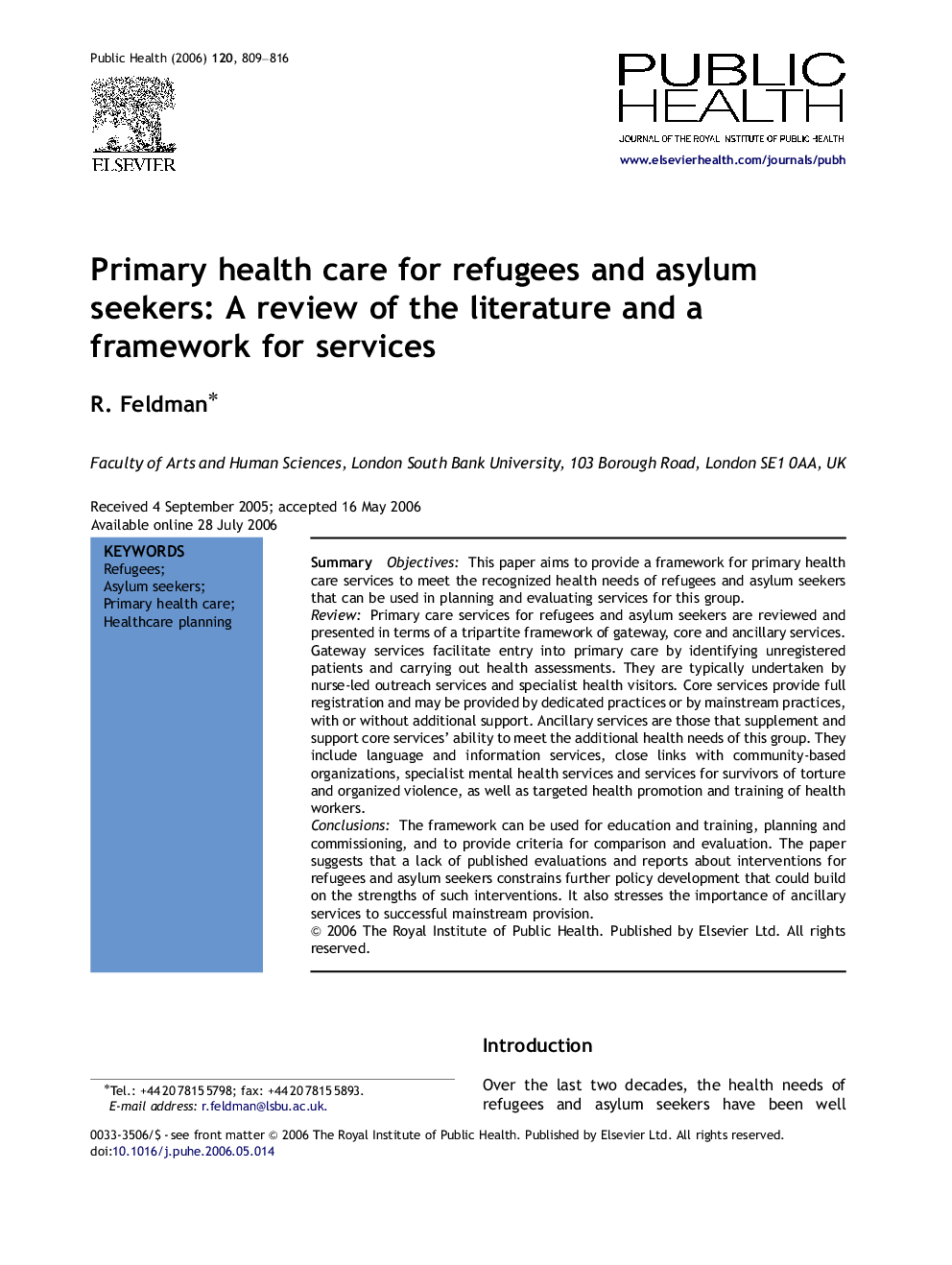| Article ID | Journal | Published Year | Pages | File Type |
|---|---|---|---|---|
| 1088855 | Public Health | 2006 | 8 Pages |
SummaryObjectivesThis paper aims to provide a framework for primary health care services to meet the recognized health needs of refugees and asylum seekers that can be used in planning and evaluating services for this group.ReviewPrimary care services for refugees and asylum seekers are reviewed and presented in terms of a tripartite framework of gateway, core and ancillary services. Gateway services facilitate entry into primary care by identifying unregistered patients and carrying out health assessments. They are typically undertaken by nurse-led outreach services and specialist health visitors. Core services provide full registration and may be provided by dedicated practices or by mainstream practices, with or without additional support. Ancillary services are those that supplement and support core services’ ability to meet the additional health needs of this group. They include language and information services, close links with community-based organizations, specialist mental health services and services for survivors of torture and organized violence, as well as targeted health promotion and training of health workers.ConclusionsThe framework can be used for education and training, planning and commissioning, and to provide criteria for comparison and evaluation. The paper suggests that a lack of published evaluations and reports about interventions for refugees and asylum seekers constrains further policy development that could build on the strengths of such interventions. It also stresses the importance of ancillary services to successful mainstream provision.
